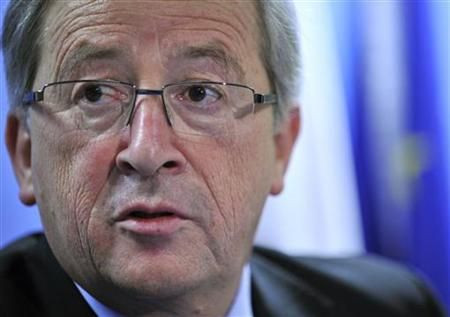Tinker, Tailor, Soldier, Spy: EU’s Longest Serving Leader Juncker Quits As Prime Minister Of Luxembourg

The entire government of the tiny European duchy of Luxembourg resigned on Thursday in the wake of a spying scandal, thereby ending Prime Minister Jean-Claude Juncker’s reign as the European Union’s longest-serving leader. Juncker, who had been in power since 1995, was blamed by his Socialist coalition partner and opposition groups for failing to prevent illegal activities by the state security agency, SREL, which included tapping the phones of politicians and private citizens, as well as acts of corruption and misconduct, including the purchase of automobiles for private use and accepting payments in exchange for providing access to lawmakers.
The prime minister is responsible for overseeing SREL’s affairs. Juncker denied any culpability in the scandals, but admitted to Parliament that the intelligence service “was not my top priority.” New elections are scheduled for October – and Juncker himself could run again since he is the most dominant force of his center-right CSV party. “That’s the paradox of the political situation today -- we have the resignation of the government, we have the end of the coalition, but personally the prime minister remains very popular,” Philippe Poirier, a political science professor at the University of Luxembourg, told The Independent newspaper of Britain.
Juncker has a sterling resume – he was ahead of the Euro group of euro zone finance ministers from 2005 to January of this year, and also served as the chief of both the World Bank and International Monetary Fund. The head of state of Luxembourg, Grand Duke Henri (who has the sole power to dissolve Parliament) was also implicated in the intelligence fiasco – there are claims that he has ties with Britain’s MI6 spy agency.
According to Reuters, Luxembourg’s former security chief, Marco Mille, secretly recorded a conversation he had with Juncker in 2008 (with a microphone embedded in his wristwatch) in which they discussed the grand duke’s connections to British intelligence. (The grand duke’s office has denied the accusation). There are also questions concerning the possible involvement of security agents in a series of bombings that struck the duchy in the mid-1980s. The mysterious “Bommeleeer affair” featured sabotage attacks on electricity pylons, an airport radar system and a newspaper office. Earlier this year, two former members of a special police unit went on trial for the bombings, but the mastermind has never been identified.
Otherwise, Luxembourg is renowned as one of the wealthiest states in the world, a picturesque little realm of bankers and investment specialists. Nestled between Germany, Belgium and France, Luxembourg has a population of just half million people (only 60 percent of whom are citizens).
© Copyright IBTimes 2025. All rights reserved.





















